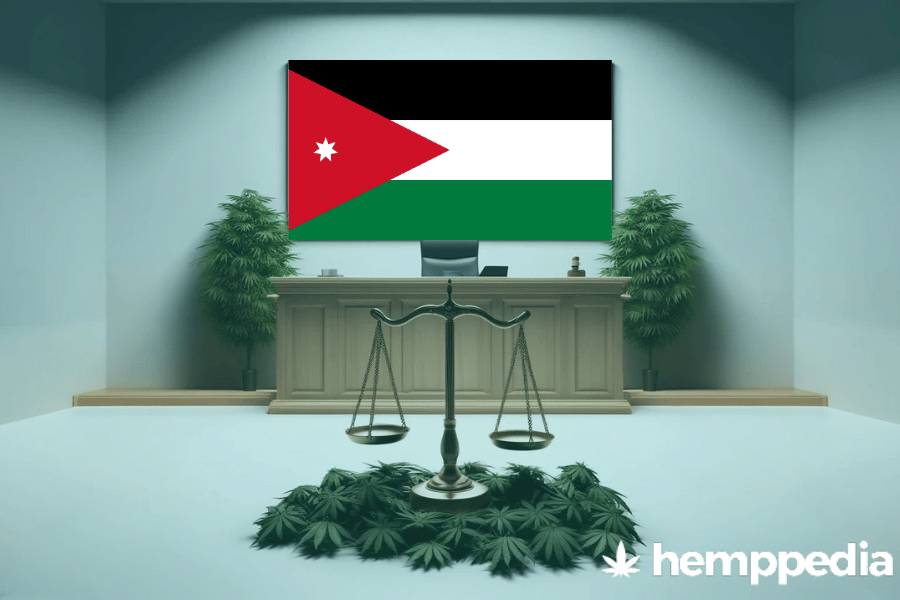TL;DR: Is CBD Legal in Jordan?
CBD, or cannabidiol, is a compound found in the cannabis plant that is gaining global attention for its potential therapeutic benefits. Unlike THC, another component of cannabis, CBD is non-psychoactive, meaning it doesn’t produce the “high” typically associated with marijuana. The legality of CBD varies widely around the world. In this post, we delve into the legal situation of CBD in Jordan.
The current legal status: Illegal
- Usage: Illegal
- Possession: Prosecutable offence
- Selling: Strictly forbidden
- Production: Prohibited
Overview of CBD Legislation
Despite global trends of deregulation and decriminalization, CBD remains illegal in Jordan.
Key definitions
- CBD: A compound found in the cannabis plant widely used for its therapeutic benefits.
- THC: The psychoactive component of cannabis that produces a high.
- Hemp vs. Marijuana: Both are varieties of the cannabis plant. Hemp has a high CBD and low THC content, whereas marijuana is rich in THC.
Legal Status
In Jordan, all forms of cannabis, including CBD, are considered narcotics under Jordanian Narcotics and Psychotropic Substances law (1988). Therefore, it is illegal to use, possess, sell, or import/export CBD.
Regulatory Bodies
The Public Security Directorate’s Anti-Narcotics Department (AND) is the primary institution responsible for enforcing cannabis-related laws in Jordan.
Conditions and Restrictions
Considering the stringent narcotics laws, there are no legal stipulations for CBD usage or possession in Jordan.
Historical Context
Historically, cannabis and its derivatives have been strictly controlled substances in Jordan under the Jordanian Narcotics and Psychotropic Substances law (1988). This stance is reflected in current laws and regulations concerning CBD.
Possession, Use, Cultivation, and Sales
In Jordan, possession, consumption, cultivation, and sales of CBD are criminal offenses, subject to severe penalties.
Enforcement and Penalties
Violating cannabis laws in Jordan carries severe penalties. Penalties can involve hefty fines and imprisonment, with sentences varying based on the severity of the offense. Fines and prison terms range significantly for possession, cultivation, or trafficking of cannabis or its derivatives.
Comparative Analysis
Compared to other countries in the Middle East and wider worldwide, Jordan’s cannabis laws remain firmly on the stricter side. No recent efforts suggest decriminalization or legalization in the near future.
Conclusion
While CBD may be gaining legal and social acceptance in many parts of the world, it remains strictly illegal in Jordan. It is crucial for individuals to understand the legal implications of using, possessing, or selling CBD products in Jordan.
References:
- Jordanian Narcotics and Psychotropic Substances law (1988), https://www.unodc.org.
- UNODC World Drug Report 2021, https://www.unodc.org.





